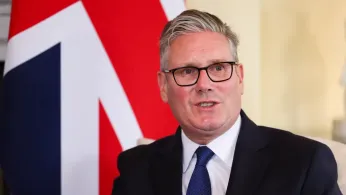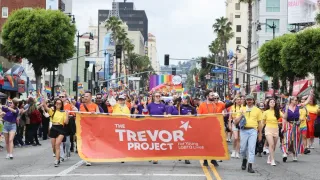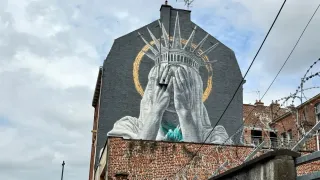
5 hours ago
Keir Starmer Faces Backlash from Queer Community Over Downing Street Pride Party
READ TIME: 3 MIN.
UK Prime Minister Keir Starmer is under fire from sections of the LGBTQ+ community after hosting a Pride Month celebration at 10 Downing Street, a move many activists have described as “incredibly insulting” given recent policy decisions affecting transgender people. The reception, publicized through official government channels and social media, was intended to honor the progress of LGBTQ+ rights in the UK and recognize the contributions of advocacy groups. However, it has instead ignited a debate about the sincerity of the government’s commitments to LGBTQ+ equality, with particular focus on the current administration’s stance on trans rights .
The Pride celebration at Downing Street featured prominent LGBTQ+ leaders, campaigners, and allies. In a speech to attendees, Starmer acknowledged the “truly transformational work” of LGBTQ+ organizations and asserted that the UK has become a more accepting place because of their efforts. He reiterated his government’s commitment to “respect, dignity, and equality,” stating, “there is always more work to do” and promising to improve the lives of LGBTQ+ people across Britain .
Despite these affirmations, many activists and community members viewed the event as a hollow gesture. Social media feeds and LGBTQ+ organizations were quick to highlight the perceived contradiction between the celebratory tone of the event and the government’s recent actions on trans rights. One widely-shared comment described the reception as “incredibly insulting,” reflecting wider frustrations within the community .
The core of the criticism centers on the Labour government’s approach to transgender rights, particularly changes to the Gender Recognition Act. In earlier manifestos, Labour had committed to introducing a self-identification process for trans people seeking legal gender recognition, a move widely supported by trans advocacy groups. However, under Starmer’s leadership, this promise was reversed in 2023, with the party opting to retain the requirement for a medical diagnosis of gender dysphoria—a decision seen by many as a significant retreat from earlier commitments .
This policy shift has led to accusations that the government is not living up to its rhetoric on LGBTQ+ rights, particularly for transgender people. Critics argue that celebrating Pride without addressing these legislative rollbacks amounts to “pinkwashing”—using LGBTQ+ events and symbols to distract from or excuse regressive policies. The backlash has been especially acute among trans rights campaigners and their allies, some of whom declined invitations to the event or used the occasion to protest government policy.
While the Downing Street Pride party was intended as a symbol of progress and inclusion, the controversy highlights ongoing divisions within the UK’s LGBTQ+ movement regarding the government’s sincerity and effectiveness on equality issues. Some community leaders welcomed the visibility and engagement, arguing that dialogue with political leaders is essential for progress. Others, however, insist that substantive policy change—especially regarding trans healthcare and legal recognition—is the only meaningful measure of support.
The controversy comes at a time when LGBTQ+ rights remain a contentious political issue in the UK and internationally. As Starmer’s government continues to shape its approach, activists and advocates are calling for greater transparency, accountability, and direct consultation with affected communities.
The reaction to the Downing Street Pride event underscores the challenges facing governments that seek to balance symbolic gestures with substantive policy commitments. For many in the UK’s LGBTQ+ community, the test of government support will not be measured by parties or speeches, but by concrete legislative action that protects and advances the rights of all, especially transgender people. As debates over equality and recognition continue, the events at Downing Street serve as a reminder that Pride is both celebration and protest—requiring more than words to secure real change .






